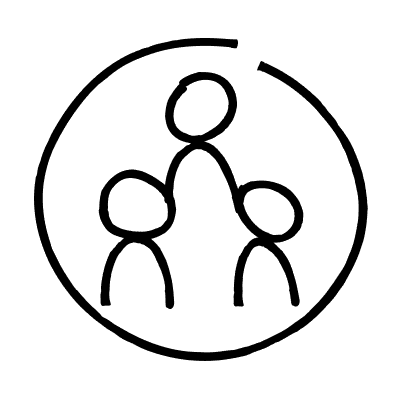Focus Group
A Journey into Discovering Opinions and Ideas
Gather 6-12 people for guided discussions to explore opinions and ideas, providing in-depth qualitative insights into attitudes and behaviors.
GOAL
To discover rich, nuanced information that informs product and service development
TOPIC:
DURATION:
DIFFICULTY:
Medium
In the world of research, understanding people's opinions, attitudes, and experiences is essential to unravel the mechanisms that guide behavior and the development of products or services. Among the methods used to explore these qualitative nuances, focus groups stand out as a valuable and engaging tool.
What are focus groups?
Imagine a group of 6-12 people gathered in a comfortable setting, guided by an experienced moderator. The discussion revolves around a specific topic, with questions aimed at stimulating reflections and exchanges of opinions. Focus groups are not based on predefined answers, but rather on a natural flow of ideas and thoughts that emerge from the interaction between the participants.
How to conduct an effective focus group?
The success of a focus group depends on a number of key factors:
Careful selection of participants: The selection criteria must ensure that the group is representative of the target audience, ensuring a variety of opinions and backgrounds.
Structured discussion guide: The discussion guide outlines the topics to be covered and the questions to be asked, ensuring focus on the central theme.
Experienced moderator: The moderator must possess communication and leadership skills, creating an inclusive environment and encouraging everyone to participate.
Comfortable environment: The location where the focus group takes place should be welcoming and free from distractions, favoring the relaxation and free expression of the participants.
In-depth data analysis: The transcripts of the discussions are analyzed methodically, identifying recurring themes, key concepts, and discrepancies of opinions.
Why use focus groups?
The advantages of this method are numerous:
Depth of information: Focus groups allow you to go beyond superficial answers, exploring the motivations, emotions, and personal experiences that lie behind the opinions expressed.
Synergy of ideas: Group discussion fosters the emergence of new perspectives and unexpected connections, enriching the understanding of the topic at hand.
Non-verbal behavior: The moderator carefully observes the body language and expressions of the participants, capturing nuances that words alone could not convey.
Cost-effectiveness: Compared to other qualitative methods, such as individual interviews, focus groups offer a good value for money, allowing data to be collected from a group of people in a relatively short time.
Focus groups: a bridge between research and reality
Focus groups represent a valuable bridge between the world of research and the lived reality of people. Through this tool, it is possible to grasp the complexity of opinions and experiences, providing valuable information for the development of products, services, and policies in line with the needs and desires of the public. Their ability to generate rich and in-depth information makes them a valuable tool for researchers, marketing professionals, sociologists, or anyone seeking to deeply understand people's opinions and needs.

